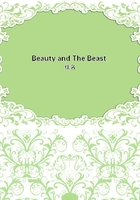
第36章 CAN A LIFE HIDE ITSELF?(2)
The evidence, however, that he had endeavored to hide his life, had been revealed by my first superficial examination; and here, Ireflected, was a singular opportunity to test both his degree of success and my own power of constructing a coherent history out of the detached fragments. Unpromising as is the matter, said I, let me see whether he can conceal his secret from even such unpractised eyes as mine.
I went through the papers again, read each one rapidly, and arranged them in separate files, according to the character of their contents. Then I rearranged these latter in the order of time, so far as it was indicated; and afterwards commenced the work of picking out and threading together whatever facts might be noted. The first thing I ascertained, or rather conjectured, was that the man's life might be divided into three very distinct phases, the first ending in Breslau, the second in Poland, and the third and final one in America. Thereupon I once again rearranged the material, and attacked that which related to the first phase.
It consisted of the following papers: Three letters, in a female hand, commencing "My dear brother," and terminating with "Thy loving sister, Elise;" part of a diploma from a gymnasium, or high school, certifying that [here the name was cut out] had successfully passed his examination, and was competent to teach,--and here again, whether by accident or design, the paper was torn off; a note, apparently to a jeweller, ordering a certain gold ring to be delivered to "Otto," and signed " B. V. H.;" a receipt from the package-post for a box forwarded to Warsaw, to the address of Count Ladislas Kasincsky; and finally a washing-list, at the bottom of which was written, in pencil, in a trembling hand:
"May God protect thee! But do not stay away so very long."In the second collection, relating to Poland, I found the following: Six orders in Russian and three in French, requesting somebody to send by "Jean" sums of money, varying from two to eight hundred rubles. These orders were in the same hand, and all signed "Y." A charming letter in French, addressed "cher ami," and declining, in the most delicate and tender way, an offer of marriage made to the sister of the writer, of whose signature only "Amelie de" remained, the family name having been torn off. A few memoranda of expenses, one of which was curious: "Dinner with Jean, 58 rubles;" and immediately after it: "Doctor, 10 rubles."There were, moreover, a leaf torn out of a journal, and half of a note which had been torn down the middle, both implicating "Jean"in some way with the fortunes of the dead man.
The papers belonging to the American phase, so far as they were to be identified by dates, or by some internal evidence, were fewer, but even more enigmatical in character. The principal one was a list of addresses in New York, divided into sections, the street boundaries of which were given. There were no names, but some of the addresses were marked +, and others ?, and a few had been crossed out with a pencil. Then there were some leaves of a journal of diet and bodily symptoms, of a very singular character;three fragments of drafts of letters, in pencil, one of them commencing, "Dog and villain!" and a single note of "Began work, September 10th, 1865." This was about a year before his death.
The date of the diploma given by the gymnasium at Breslau was June 27, 1855, and the first date in Poland was May 3, 1861. Belonging to the time between these two periods there were only the order for the ring (1858), and a little memorandum in pencil, dated "Posen, Dec., 1859." The last date in Poland was March 18, 1863, and the permit to embark at Bremen was dated in October of that year.
Here, at least, was a slight chronological framework. The physician who attended the county almshouse had estimated the man's age at thirty, which, supposing him to have been nineteen at the time of receiving the diploma, confirmed the dates to that extent.
I assumed, at the start, that the name which had been so carefully cut out of all the documents was the man's own. The "Elise" of the letters was therefore his sister. The first two letters related merely to "mother's health," and similar details, from which it was impossible to extract any thing, except that the sister was in some kind of service. The second letter closed with: "I have enough work to do, but I keep well. Forget thy disappointment so far as _I_ am concerned, for I never expected any thing; I don't know why, but I never did."Here was a disappointment, at least, to begin with. I made a note of it opposite the date, on my blank programme, and took up the next letter. It was written in November, 1861, and contained a passage which keenly excited my curiosity. It ran thus: "Do, pray, be more careful of thy money. It may be all as thou sayest, and inevitable, but I dare not mention the thing to mother, and five thalers is all I can spare out of my own wages. As for thy other request, I have granted it, as thou seest, but it makes me a little anxious. What is the joke? And how can it serve thee?
That is what I do not understand, and I have plagued myself not a little to guess."Among the Polish memoranda was this: "Sept. 1 to Dec. 1, 200rubles," which I assumed to represent a salary. This would give him eight hundred a year, at least twelve times the amount which his sister--who must either have been cook or housekeeper, since she spoke of going to market for the family--could have received.